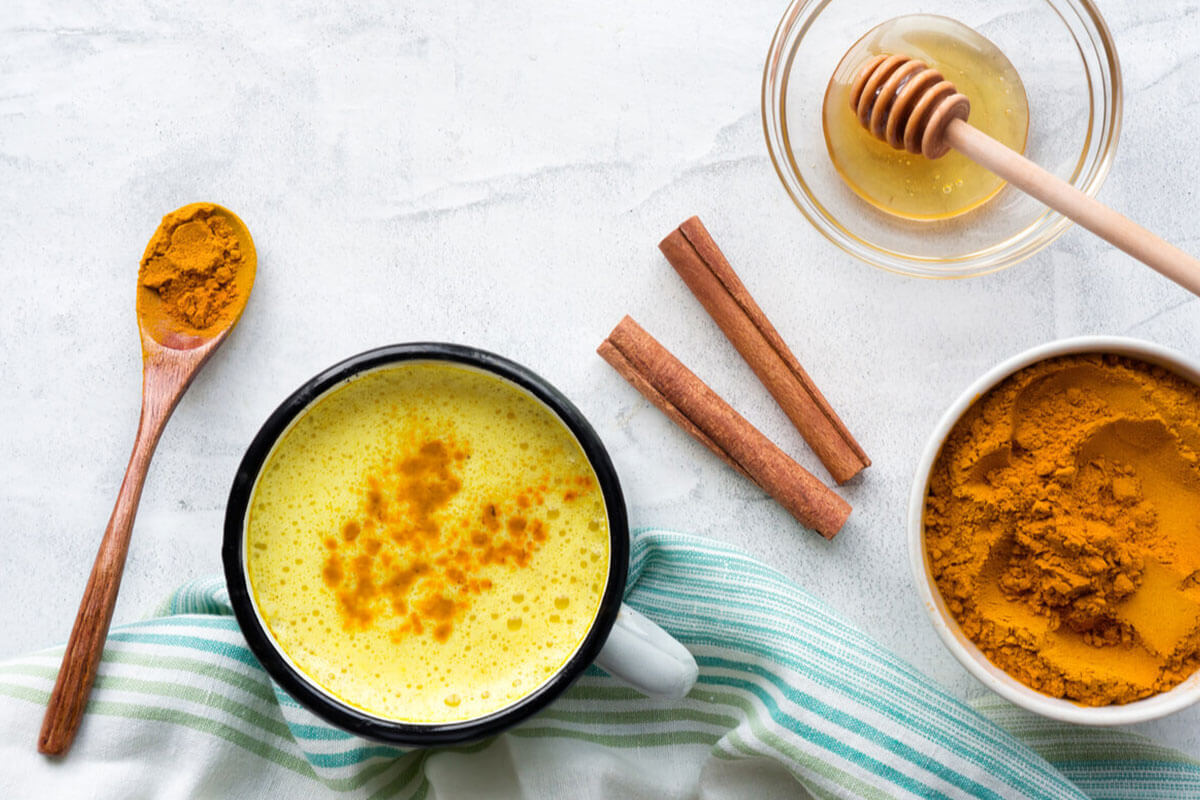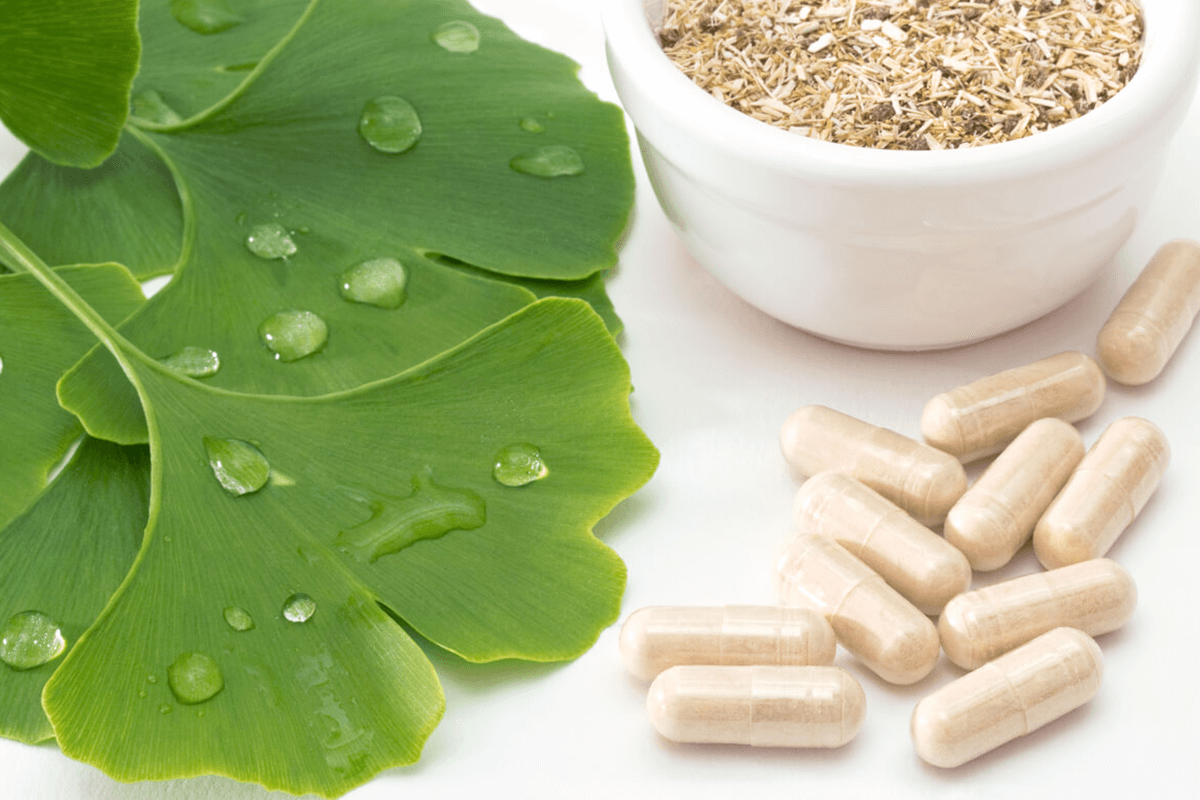The human brain is a remarkable organ. It’s our central command, governing not just our thoughts but all body functions. It’s no wonder we are so concerned with natural ways to maintain our brain health at every stage of life.
While some changes in brain function as we age are normal, certain factors affecting brain health are within our control. For instance, there are plenty of simple steps you can take to protect your brain as you get older, including consuming certain medicinal herbs that have been shown to support brain health and memory.
3 medicinal herbs to boost brain health
The plant kingdom includes several herbs and spices that may support brain health.

1. Turmeric (Curcuma longa)
The active component of turmeric is called curcumin, and more than 1,000 studies have been published worldwide on its health benefits. (14) When it comes to supporting brain health, curcumin has several effects that may work together to boost cognitive function.
It has been suggested that curcumin targets several factors that may negatively affect brain functioning, including inflammation, oxidative stress, and beta-amyloid plaque formation, the latter being associated with Alzheimer’s disease. (14) Curcumin may help reduce plaque formation while also tackling inflammation and acting as an antioxidant. (7)(17)
Did you know? In its unaltered state, curcumin is not easily absorbed by the body. However, consuming it in food or supplement form, along with black pepper, may help the body absorb it better. Research has shown that the active ingredient in black pepper, piperine, increases the concentration of curcumin in the blood, improves bioavailability, and expands absorption. (9)
2. Pycnogenol
As we age, our brains go through a complex array of changes. The structure of the brain itself changes, and so do the chemical messengers in the brain. These changes are responsible for the reduced cognitive function some people experience with age. (15)
Research suggests that pycnogenol, an extract derived from the bark of a maritime pine tree that grows on the coasts of France, may help maintain brain function as we age. Pycnogenol has been used medicinally for hundreds of years but has received renewed attention in recent years. (15)
Similar to curcumin, pycnogenol appears to target inflammation and oxidative stress. It also appears to help fight the age-related damage to the brain’s vascular structures that contributes to cognitive decline. (15)

In addition to providing cognitive support for aging individuals, pycnogenol may be beneficial in certain younger people as well. One study showed that it helps kids with attention-deficit/hyperactivity disorder (ADHD) by increasing attention and improving antioxidant status and DNA damage associated with the condition. (4)
In another study, healthy university students demonstrated improved attention, memory, executive function, and mood after taking pycnogenol for eight weeks. (13) A similar study found comparable results in professionals between the ages of 35 and 55 who took the pine bark extract for 12 weeks. (3)
Pycnogenol has a good safety record with very few reported side effects. The most common complaint is gastrointestinal upset, and this complaint may be mitigated by consuming pycnogenol with food. (15)
3. Ginkgo biloba
Ginkgo biloba extract (GBE) may be one of the most well-known medicinal herbs for brain health. Derived from the dried leaves of the Ginkgo biloba tree, GBE is often used to address age-related memory issues, information processing time, and dementia. (2)(10)(12)
While many studies support ginkgo’s ability to improve brain function as we age, some evidence isn’t conclusive. For instance, one large study looked at ginkgo for the prevention of Alzheimer’s dementia and found that it didn’t have any significant effect. (5)

Some researchers argue that this study and others like it are looking at the issue too broadly, and research more clearly supports the use of ginkgo for specific cognitive functions. For example, one study in young volunteers found that taking 120 mg per day of GBE for 30 days improves working memory speed and other cognitive functions. (16)
Research also shows Ginkgo biloba may improve attention and memory. (6)(11)
While more research is needed, the effects of Ginkgo biloba on brain function may in part be attributed to its antioxidant properties. GBE may also influence some of the neurotransmitters that are involved in cognitive function such as acetylcholine and serotonin. (1)
The bottom line
Whether you’re looking to protect your brain as you get older, or just want to be a little sharper or more nimble in your thinking, nature offers plenty of ways to help.
Turmeric, French maritime pine, and Ginkgo biloba may be able to help protect your brain from the oxidative stress, inflammation, and structural changes we all face. While there’s no miracle pill to keep your brain from aging—or to keep you from sometimes forgetting where you put your keys—there are ways to support your cognitive function, naturally.
- Ahlemeyer, B., & Krieglstein, J. (2003). Neuroprotective effects of ginkgo biloba extract. Cellular and Molecular Life Sciences (CMLS), 60(9), 1779–1792.
- Allain, H., Raoul, P., Lieury, A., LeCoz, F., Gandon, J. M., & d’Arbigny, P. (1993). Effect of two doses of ginkgo biloba extract (EGb 761) on the dual-coding test in elderly subjects. Clin Ther., 15(3), 549–548.
- Belcaro, G., Luzzi, R., Dugall, M., Ippolito, E., & Saggino, A. (2014). Pycnogenol® improves cognitive function, attention, mental performance and specific professional skills in healthy professionals aged 35–55. J Neurosurg Sci, 58(4), 239–248.
- Chovanová, Z., Muchová, J., Sivoňová, M., Dvořáková, M., ŽItňanová, I., Waczulíková, I., Trebatická, J., ŠKodáček, I., & ĎUračková, Z. (2006). Effect of polyphenolic extract, pycnogenol, on the level of 8-oxoguanine in children suffering from attention deficit/hyperactivity disorder. Free Radical Research, 40(9), 1003–1010.
- DeKosky, S. T. (2008). Ginkgo biloba for prevention of DementiaA randomized controlled trial. JAMA, 300(19), 2253–2262.
- Elsabagh, S., Hartley, D. E., Ali, O., Williamson, E. M., & File, S. E. (2005). Differential cognitive effects of ginkgo biloba after acute and chronic treatment in healthy young volunteers. Psychopharmacology, 179(2), 437–446.
- Frautschy, S. (2001). Phenolic anti-inflammatory antioxidant reversal of AÎ2-induced cognitive deficits and neuropathology. Neurobiology of Aging, 22(6), 993–1005.
- Ganguli, M., Chandra, V., Kamboh, M. I., Johnston, J. M., Dodge, H. H., Thelma, B. K., Juyal, R. C., Pandav, R., Belle, S. H., & DeKosky, S. T. (2000). Apolipoprotein e polymorphism and alzheimer disease. Archives of Neurology, 57(6), 824–830.
- Hewlings, S., & Kalman, D. (2017). Curcumin: A review of its effects on human health. Foods, 6(10), 92.
- Kanowski, S., Herrmann, W., Stephan, K., Wierich, W., & Hörr, R. (1996). Proof of efficacy of the ginkgo biloba special extract EGb 761 in outpatients suffering from mild to moderate primary degenerative dementia of the alzheimer type or multi-infarct dementia. Pharmacopsychiatry, 29(02), 47–56.
- Kennedy, D. O., Scholey, A. B., & Wesnes, K. A. (2000). The dose-dependent cognitive effects of acute administration of ginkgo biloba to healthy young volunteers. Psychopharmacology, 151(4), 416–423.
- le Bars, P. L. (1997). A placebo-controlled, double-blind, randomized trial of an extract of ginkgo biloba for dementia. North american EGb study group. JAMA: The Journal of the American Medical Association, 278(16), 1327–1332.
- Luzzi, R., Belcaro, G., Zulli, C., Cesarone, M. R., Cornelli, U., Dugall, M., Hosoi, M., & Feragalli, B. (2011). Pycnogenol® supplementation improves cognitive function, attention and mental performance in students. Panminerva Med, 53, 75–82.
- Mishra, S., & Palanivelu, K. (2008). The effect of curcumin (turmeric) on Alzheimer′s disease: An overview. Annals of Indian Academy of Neurology, 11(1), 13–19.
- Simpson, T., Kure, C., & Stough, C. (2019). Assessing the efficacy and mechanisms of pycnogenol® on cognitive aging from in vitro animal and human studies. Frontiers in Pharmacology, 10.
- Stough, C., Clarke, J., Lloyd, J., & Nathan, P. J. (2001). Neuropsychological changes after 30-day ginkgo biloba administration in healthy participants. The International Journal of Neuropsychopharmacology, 4(02), 131–134.
- Zhang, L., Fiala, M., Cashman, J., Sayre, J., Espinosa, A., Mahanian, M., Zaghi, J., Badmaev, V., Graves, M. C., Bernard, G., & Rosenthal, M. (2006). Curcuminoids enhance amyloid-β uptake by macrophages of alzheimer’s disease patients. Journal of Alzheimer’s Disease, 10(1), 1–7.





